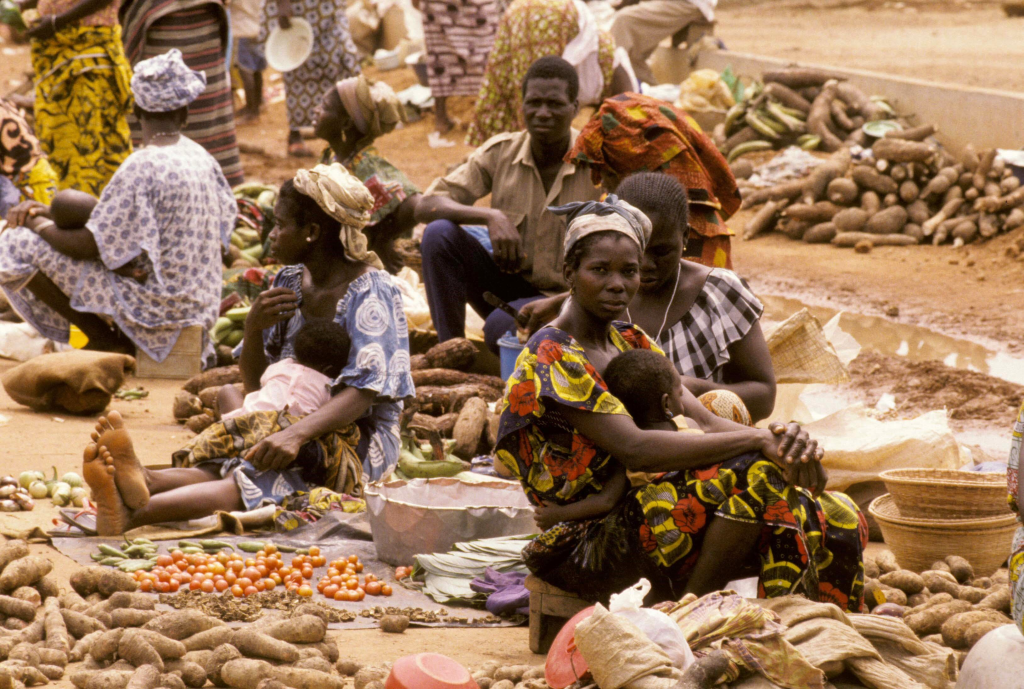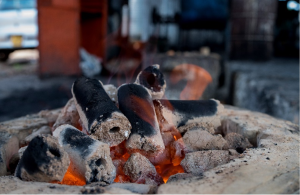
Author: Goodness Uchechukwu Okuli | maryannokuli15@gmail.com
Africa is replete with a superfluous deposit of natural resources. An estimated 12 percent of global oil reserves; 40 percent of global gold, chromium and platinum reserves; 30 percent of the world’s mineral resources; and 8 percent of all natural gas reserves are found in Africa. Notwithstanding, our continent has been unable to translate these resources into meaningful economic development, and remains the most underdeveloped and poverty-stricken region of the world. This regrettable development then raises the obstinate question: “Why are African countries impoverished despite their wealth of resources?”
That Africa wallows in poverty is an incontestable fact. Around 430 million Africans lived in extreme poverty in 2022—amounting to 35% of the population. The 23 of the world’s 30 poorest countries are in Africa. Interestingly, even when most African nations encounter growths in GDP, it often fails to trickle down to the populace in the form of tangible wealth. Poverty makes basic needs like water and energy unattainable, while exacerbating long-standing issues of food insecurity and disease spread.
One might wonder: “why are nations with fewer natural resources like South Korea and Japan wealthier than resource-rich African nations like Sierra Leone and Congo?”
Income inequality is a leading cause of poverty in Africa. In Africa, enormous wealth is concentrated in the hands of a small percent of the population, while the majority struggle for scant resources. Hence, while African countries realize reasonable dividends on their natural resources, poverty persists on a large scale because these dividends are distributed unequally. For instance, South Africa—the most developed African economy—has the highest income inequality globally. Similarly, according to the AFDB Market Brief, the rich (4.8% of the population) account for 18.8% of total income in Africa, while the poor (60.8%) account for 36.5%.
Excessive reliance on a single natural resource is another cause of poverty. Two of Africa’s biggest oil-producing nations, Nigeria and Angola, rely on oil for 70–75 percent of their export earnings. Agriculture accommodates 36% of the Nigerian workforce, but only accounts for 2% of the GDP due to the reliance on oil. This dependence renders such economies susceptible to global price volatility. When there is a large fluctuation in the world’s pricing for that product, these economies suffer immensely. This materialized when oil prices plunged in 2015, leading to the 2016 Nigerian recession.
Infrastructure deficit, in reference to refineries, is another contributor. Given Africa’s resources, one would expect Africa to be the “home of refineries.” Yet this is false. According to CITAC, there are just 46 refineries in operation in Africa, in contrast with 310 in Asia. This lack of capacity to refine resources into finished goods results in African nations incurring avoidable costs and ceding valuable assets to foreign nations in order to refine its resources abroad. Furthermore, it deprives Africa of a viable tool for local wealth creation in the form of local job opportunities and tax revenues.
Another contributor is limited access to education. Nearly 60% of African teenagers between the ages of 15 and 17 are out-of-school. Thus, while youths in other continents are being trained to contribute positively to socioeconomic growth, African youths remain unable to foster innovation that can help the continent manage its resources better and drive growth. Importantly, poor access to education hampers young people’s prospects of acquiring jobs and harnessing opportunities that can create personal income. Unsurprisingly, youth account for 60% of all unemployed persons in Africa.
Increasing the local processing capacity by building more refineries in Africa will help reduce poverty. This implies reduced production costs for countries whose economies rely on petroleum products like diesel, decreased exposure to market volatility, diversification of export products, local recruitment for the domestic workforce and protection for local businesses and households from the effects of global price fluctuations.
Furthermore, expanding into other industries, like agriculture, will revolutionize African economies. There is potential for more development of this rural infrastructure because Africa has 60% of its land uncultivated. Agriculture as a tool for national wealth creation has not been harnessed adequately, as it mainly occurs on a subsistence level. Therefore, more needs to be done to increase its market participation. This would have the desired effect of reducing income inequality since agriculture employs a higher proportion of rural population than urban dwellers. Generally, Africans must liberate their economies by diversifying into other resource sectors that remain largely untapped.
Additionally, encouraging domestic enterprise can address poverty and income disparity in Africa. States should prioritize fostering businesses that are linked with the relevant resource sectors in their countries, such as agribusinesses in countries where agriculture is a major industry. Domestic enterprise can be incentivized by imposing import tariffs on foreign commodities that are also being grown or processed locally. In return, tariff revenues can be used to fund subsidies and reduce business taxes for local SMSEs in order to encourage rural businesses owned by low-income earners.
In conclusion, education should be made more accessible, in order to facilitate the development of human capital which is needed for proper management of state resources and for ideas that can alter the current state of affairs on the continent.



